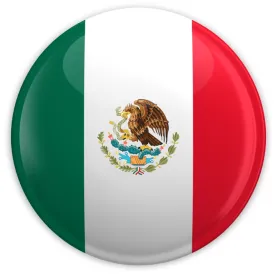On July 27, 2020, the Mexico Ministry of Health (Secretaría de Salud) published Draft Regulations on Health Control for the Production, Research, and Medical Use of Cannabis and its Pharmacological Derivatives (the Draft Regulations) on the National Commission for Regulatory Improvements (Comisión Nacional de Mejora Regulatoria) (CONAMER) website.
In summary, the Draft Regulations contain provisions allowing:
-
Activities for the primary production of cannabis for the supply of industrial production, raw material production for pharmacological and agronomic research, and production of qualified cannabis seed.
-
The use of cannabis for research purposes to obtain its molecular complexes or pharmacological derivatives to be used in pharmaceutical production, with prior authorization of the Research Protocol issued by COFEPRIS.
-
The use of cannabis for agronomic research purposes, that is, for scientific activities for the development of primary production technologies for cannabis, including variety assessment and development, crop management and cannabis characteristics.
-
Prescribing medicines with cannabis with the required authorization issued by COFEPRIS.
-
Import of raw materials, molecular complexes, pharmacological derivatives, or medicines related to cannabis.
-
Export of pharmacological derivatives and medicines containing cannabis.
-
Possessing medicines with cannabis, with the relevant prescription issued by an authorized professional.
This GT Alert summarizes the Draft Regulations in more detail below.
Scope and Definitions
The Draft Regulations are enforceable throughout the national territory for the purpose of regulation, control, promotion, and health surveillance of raw materials, molecular complexes, pharmacological derivatives, and medicines for the production, scientific, industrial, and medical use of cannabis, psychoactive cannabis, and its derivatives. The Draft Regulations provide the following definitions:
-
Cannabis: Cannabis sativa, indica, and American or marijuana, its resin, preparations, and seeds.
-
Cannabinoids: Organic compounds belonging to the group of terpenophenols, including cannabidiol and tetrahydrocannabinol.
-
Molecular complexes: The mixture of two or more cannabinoids of the psychoactive components of cannabis.
-
Pharmacological derivative of cannabis: Any cannabinoid and its acidic forms, the mixture or composition of these, which have some pharmacological activity, identified by their physical, chemical properties or biological actions, which is not presented in a pharmaceutical form and which meets the conditions for use as an active ingredient of a medicinal product.
-
Raw material: The seeds, seedlings, propagating plant material, stems, leaves, or inflorescences of cannabis required for the manufacture of molecular complexes, pharmacological derivatives, or medicines from cannabis.
-
Medication: Any substance or mixture of substances of natural or synthetic origin having a therapeutic, preventative, rehabilitative, or palliative care effect, presented in pharmaceutical form and identified as such by its pharmacological activity, physical, chemical, and biological characteristics containing cannabis or its pharmacological derivatives.
-
Research Protocol: The document that describes the proposal of research involving the use of cannabis to obtain its molecular composition or pharmacological derivatives to be used in pharmaceutical production.
-
Testing: Validation and testing of the cannabis seed and plant and its derivatives by the competent authorities, including varietal description, safety testing and any other tests as determined.
-
Traceability: A system that allows the identification of the origin and different stages of the evolution of products for production, scientific, industrial, and medical purposes related to cannabis and its distribution, and that contain unified information of all activities for greater control and monitoring capacity by authorities.
Regulated Activities
Regulated activities include: (i) the supply and generation of raw materials for research; (ii) research for health, pharmacological, agronomic purposes and production of molecular complexes, pharmacological derivatives, and medicines; (iii) medical purposes; and (iv) industrial purposes. The scope of each is described as follows:
-
Production - sowing permit. The permit to sow cannabis for research purposes must be requested from the National Service for Health, Food Safety and Quality, Decentralized Administrative Body of the Ministry of Agriculture and Rural Development (Servicio Nacional de Sanidad, Inocuidad y Calidad Agroalimentaria, Órgano Administrativo Desconcentrado de la Secretaría de Agricultura y Desarrollo Rural) (SENASICA). Documentation to evidence that it has an authorized Research Protocol, or a health registration, for the medicine that will be produced will be required.
Permits to plant authorized species or varieties of cannabis shall be granted for planting, cultivation, and harvesting activities; for health research, the production of molecular complexes, pharmacological derivatives and medicines, or if applicable, for the production of seed certified by the National Seed Inspection and Qualification Service, a decentralized administrative body of the Ministry of Agriculture and Rural Development (Servicio Nacional de Inspección y Calificación de Semillas, Órgano Administrativo Desconcentrado de la Secretaría de Agricultura y Desarrollo Rural) (SNICS).
-
Production - of qualified cannabis seed. To apply for the registration of a plant variety of cannabis in the National Catalogue of Plant Varieties (Catálogo Nacional de Variedades Vegetales), an application must be submitted in accordance with the format issued by SNICS, which shall contain (among others) the following requirements:
-
description of the variety according to the Technical Guide for the varietal description of the cannabis species;
-
technical studies, seed quality analysis, biochemical and molecular tests, photographs, or any other that considered necessary and useful in the identification and differentiation of the variety; and
-
To register a new variety of cannabis that is made from an existing type of cannabis, a description of the origin and variety for both must be submitted.
-
-
Research. Those interested in carrying out research must obtain the authorization of the Research Protocol issued by the Mexican Commission for the Protection against Sanitary Risk (COFEPRIS), which describes the proposal for research regarding the use of cannabis in order to obtain its molecular complexes or pharmacological derivatives to be used in pharmaceutical production.
The application before COFEPRIS shall include:
-
raw material quantities, molecular complexes, pharmacological derivatives or medicines, for the development of the investigation;
-
the validation of the origin of the material subject to the Investigation Protocol;
-
the fulfillment of the Test and the Traceability from its origin to its final disposition; and the Investigation Protocol.
-
-
In addition to the provisions of the Draft Regulations, for the purposes of cannabis research, this activity shall be subject to the provisions of Title Five of the Law and the Regulations of the General Health Law on Health Research (Ley General de Salud en Materia de Investigación para la Salud).
-
Medical purposes. Only doctors, homeopaths, and dental surgeons with a professional certificate shall prescribe medicines. In this regard, professionals interested in obtaining the bar code for medicine prescriptions shall submit their request in the format authorized by COFEPRIS, which has a 5-day response time period.
The authorized professionals will prescribe the medicines in special prescriptions, in original and copy, which must contain the folio number and code expressed in bar code with the doctor or specialist’s identification number.
-
Industrial. The manufacturing of raw materials lots, molecular complexes, pharmacological derivatives or medicines, intended to obtain sanitary registration for sale or for scientific purposes, shall be registered in the control book authorized by COFEPRIS and signed by an authorized person in charge of the interested laboratory or institution.
The raw materials, molecular complexes, pharmacological derivatives or medicines produced or commercialized by factories, laboratories or distributors may only be sold to establishments with an valid health license.
Import
The only elements that may be imported are raw materials, molecular complexes, and pharmacological derivatives or medicines, in accordance with the following general rules:
-
Raw material. In the case of cannabis seeds and seedlings, COFEPRIS may grant permission to import raw materials, solely for medicinal use and research.
SENASICA will issue the phytosanitary certificates for the import of raw materials for botanical seed for sowing; seedlings for sowing, and plant propagating material.
The import of raw materials or products containing them will not be allowed in cases where they are prohibited in the country of origin or that are not allowed to be imported.
-
Molecular complexes. For the sampling of molecular complexes, pharmacological derivatives or medicines and the release of the abovementioned, the establishment shall request the presence of a health verifier to remove the corresponding bands.
The importer of molecular complexes, pharmacological derivatives and medicines must have the required facilities to handle them safely, and to guarantee their quality and pharmacovigilance in accordance with the applicable regulations.
-
Pharmacological derivatives. Medicines containing pharmacological derivatives of cannabis may only be imported when the expiration date is greater than 12 months, starting from the entry date to Mexican territory, unless otherwise authorized by COFEPRIS.
-
Medication. COFEPRIS shall require that the analytical certificates of imported medicines containing cannabis to be endorsed by the manufacturer’s health officer, or its equivalent, as well as by the health officer of the laboratory requesting the registry.
COFEPRIS may grant a permit to import medicines intended for personal use. For this purpose, applicants must include a valid medical prescription with the application, including the prescriber’s professional card number, and indicating the product and quantity.
Export
Only pharmacological derivatives and medicinal products may be exported. To obtain the export certificate an application must be submitted with the original letter of acceptance from the final importer.
Likewise, when a free-sale certificate of pharmacological derivatives and medicines is granted, the interested party shall notify COFEPRIS of the estimated export date, so that a verifier can be assigned to validate that: the product is authorized (including verifying the export/import permits numbers and dates, product name, lot number, expiration date, and quantity); the name of the transporting company; and that the input was banded, sealed, and waxed.
Possession of Medicines
The possession of medicines shall be accredited when required by the corresponding authorities with a copy of the special prescription containing the bar code and the signature of the professional who prescribed, it or with the corresponding invoice.
Passengers on international trips under treatment or who require medication, whether residing in the country or abroad, must show the relevant medical prescription to the competent authority or, if applicable, the permit issued by the competent authority from their country of origin.
Advertising
Advertising of medicinal products containing pharmacological derivatives of cannabis shall only be authorized for promoting such products health professionals. Promotion and advertising to the general public is prohibited.
Sale and Distribution
The Draft Regulations establish certain provisions which allow for the sale and distribution of cannabis, i.e. the distribution of seeds, seedlings, propagating plant material, stems, leaves, inflorescences, molecular complexes, pharmacological derivatives, and medicinal products, for commercial speculation, production, research, pharmacological research, and agronomic, industrial, or medical research.
Although the Draft Regulations include some provisions on the regulation of the commercialization of cannabis (described below), further legal provisions may be issued to provide more detail and clarity, as these
-
It is established that the marketing and circulation of all cannabis seeds will be carried out in accordance with the Federal Law on Production, Certification and Trade of Seeds (Ley Federal de Producción, Certificación y Comercio de Semillas), as well as other applicable provisions, and by the SNICS.
-
The entities that process or commercialize raw materials, molecular complexes, pharmacological derivatives, or medicines, will only be able to sell them to establishments with an accredited sanitary license in accordance with article 257 of the General Law of Health. This includes: authorized hospitals, warehouses of deposit and distribution of medicines and biological products or hemoderivates for human use, drugstores, or pharmacies.
-
In order to authorize the use or marketing of molecular complexes, pharmacological derivatives or medicinal products, the owner or person responsible for the health of the premises must present a certification that a health analysis of the premises was conducted either by their own laboratory or by a laboratory that specializes in health regulation.
-
Companies that sell or distribute medicinal products containing pharmacological derivatives of cannabis must have a notice of operation, a health license, a health manager compliance with the required rules, and proof of tax identification.
Conclusions
It is important to mention that the Draft Regulations are not yet in force, since they are still under public consultation at CONAMER’s website, and have not yet been published in the Mexican Official Gazette (DOF). Hence, it is possible to provide feedback regarding this instrument to be considered by the authorities and for them to make the adjustments deemed appropriate.
For more information regarding Cannabis in Mexico please see our prior GT Alerts:
-
March 2020 – Update on Cannabis (Marijuana) Regulations in Mexico
-
June 2019 – Update on Cannabis (Marijuana) Regulations in Mexico
-
January 2019 – Regulation of Cannabis Regulations in Mexico
* This GT Alert is limited to non-U.S. matters and law.




 />i
/>i
